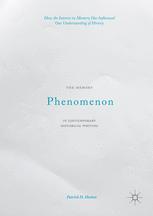

Most ebook files are in PDF format, so you can easily read them using various software such as Foxit Reader or directly on the Google Chrome browser.
Some ebook files are released by publishers in other formats such as .awz, .mobi, .epub, .fb2, etc. You may need to install specific software to read these formats on mobile/PC, such as Calibre.
Please read the tutorial at this link: https://ebookbell.com/faq
We offer FREE conversion to the popular formats you request; however, this may take some time. Therefore, right after payment, please email us, and we will try to provide the service as quickly as possible.
For some exceptional file formats or broken links (if any), please refrain from opening any disputes. Instead, email us first, and we will try to assist within a maximum of 6 hours.
EbookBell Team

4.3
8 reviewsIn this book, the author provides a comprehensive overview of the intense and sustained work on the relationship between collective memory and history, retracing the royal roads pioneering scholars have traveled in their research and writing on this topic: notably, the politics of commemoration (purposes and practices of public remembrance); the changing uses of memory worked by new technologies of communication (from the threshold of literacy to the digital age); the immobilizing effects of trauma upon memory (with particular attention to the remembered legacy of the Holocaust). He follows with an analysis of the implications of this scholarship for our thinking about history itself, with attention to such issues as the mnemonics of historical time, and the encounter between representation and experience in historical understanding. His book provides insight into the way interest in the concept of memory - as opposed to long-standing alternatives, such as myth, tradition, and heritage - has opened new vistas for scholarship not only in cultural history but also in shared ventures in memory studies in related fields in the humanities and social sciences.